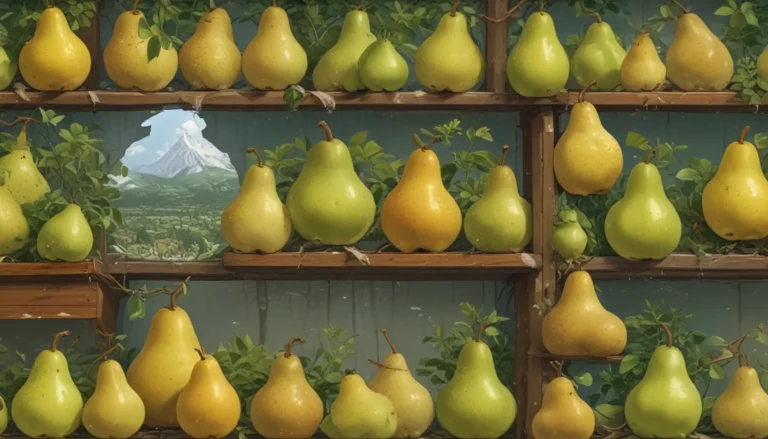Comprehensive Guide to Fertilizing Blackberries for a Bountiful Harvest

There are few things more satisfying than biting into a juicy, ripe blackberry and experiencing the burst of flavor and nutrients. Growing blackberries can be a rewarding experience, as these plants are quite reliable and produce abundant harvests without much fuss.
However, proper fertilization is essential to ensure a thriving crop of blackberries. Along with pruning, fertilizing plays a significant role in determining the success of your berry harvest. In this comprehensive guide, we will discuss when and how to fertilize blackberries to maximize their growth and yield.
What You’ll Learn
In this article, we will cover the following key aspects of fertilizing blackberries:
- What Kind of Fertilizer to Use
- When to Fertilize
- How to Fertilize
Fertilization practices can vary depending on whether you are dealing with new plantings or established plants. We will walk you through the process step by step to make it easy and straightforward.
Understanding Your Soil’s Needs
Before you begin fertilizing your blackberries, it’s essential to test the soil to determine its nutrient levels and pH. Based on the results, you can adjust the soil’s pH if necessary to ensure that the plants can access the nutrients effectively. Blackberries thrive in slightly acidic to neutral soil with a pH range of 5.5 to 7.0.
Once you have a good understanding of your soil’s composition, you can make informed decisions about fertilizing your blackberry plants.
What Kind of Fertilizer to Use
There are several types of fertilizers available, ranging from organic options to conventional chemical blends. The choice of fertilizer depends on your personal preferences and gardening philosophy. Here are some common options:
-
Granular Fertilizer: A balanced, slow-release granular fertilizer like a 10-10-10 or 20-20-20 (NPK) is a convenient choice for feeding blackberries. Products like Lily Miller All-Purpose Planting & Growing Food are readily available and effective.
-
Liquid Fertilizer: Liquid fertilizers can also be used but require more frequent applications. You can opt for a 3-3-3 (NPK) blend or a diluted 10-10-10 formulation like Bonide Liquid Plant Food.
-
Organic Options: If you prefer a natural approach, well-rotted manure is an excellent choice for fertilizing blackberries. Apply it in the fall to allow sufficient time for the nutrients to leach into the soil.
Whichever type of fertilizer you choose, make sure to follow the instructions on the product packaging for the best results.
When to Fertilize
Knowing when to fertilize your blackberries is crucial for their growth and development. The timing of fertilizer application can vary based on the type of fertilizer you are using:
-
Commercial Fertilizer: If using a commercial fertilizer, feed your plants once a year with a balanced, slow-release granular fertilizer when the blackberries are mid-bloom.
-
Liquid Fertilizer: For liquid fertilizers, apply a 3-3-3 (NPK) blend at specific growth stages, such as when the leaves bud, flowers bud, and berries start to change color.
-
Manure or Compost: Apply well-rotted manure or compost in late fall before the first projected frost date. Monitor the plant’s health for signs of nutrient deficiencies and address them promptly.
If you notice any signs of nutrient deficiencies, such as pale leaves, conduct a soil test to determine the problem and take corrective action accordingly.
How to Fertilize
Once you have determined the type of fertilizer and the timing of application, it’s time to fertilize your blackberry plants. Here are some tips for effective fertilization:
-
New Plantings: One-year-old plants require about one and a quarter ounces of nitrogen per linear foot. Use a 10-10-10 granular fertilizer at a rate of five pounds per 100 linear feet. Apply the fertilizer in a circle around the plant.
-
Established Plants: For plants over three years old, use a 20-20-20 fertilizer blend at a rate of one and a half ounces per plant. Apply the fertilizer at or just inside the drip line for optimal nutrient uptake.
-
Alternative Methods: If you prefer organic fertilizers, applying well-rotted manure is a practical and effective option. Side dress each plant with several handfuls of manure to replenish the nitrogen levels in the soil.
By following these guidelines and adjusting them based on your plant’s specific needs, you can ensure that your blackberry bushes thrive and produce abundant harvests season after season.
Conclusion
Fertilizing blackberries is a simple yet essential aspect of maintaining healthy and productive plants. By understanding the nutrient requirements of your blackberry bushes and following the correct fertilization practices, you can enjoy a bountiful harvest of delicious, nutritious berries year after year.
If you have any questions or encounter challenges while fertilizing your blackberries, feel free to reach out for assistance. We are here to help you navigate the process and achieve optimal results in your berry garden.
Additional Resources
If you’re interested in expanding your knowledge of growing blackberries, consider exploring our other guides on topics such as:
- How to Grow and Care for Blackberry Bushes
- Tips for Growing Blackberries in Containers
- How and When to Prune Blackberry Bushes
Let’s Grow Together
Fertilizing your blackberries is a rewarding task that can lead to a successful harvest and a thriving berry garden. By following the guidelines outlined in this article and staying attuned to your plant’s needs, you can create an ideal environment for your blackberry bushes to flourish.
Remember, a little bit of care and attention go a long way in ensuring the health and vitality of your plants. Happy gardening, and may your blackberries be plentiful and delicious!
© Online Garden Magazine. ALL RIGHTS RESERVED. See our Terms of Service for more details.





